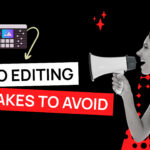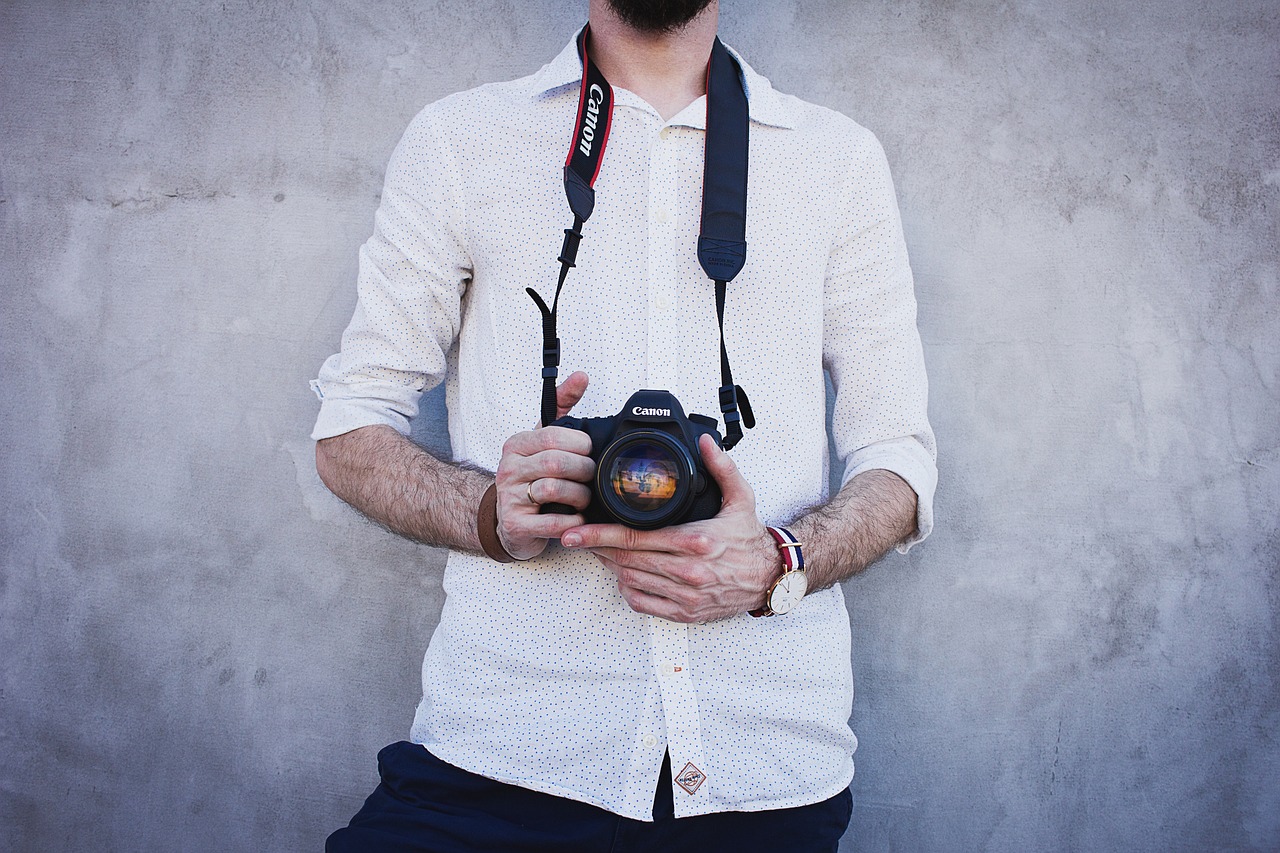Should You Use A UV Protection Lens Filter
Estimated reading time: 10 minutes
If you have ever been out shooting on a sunny day, you know how important it is to protect your lens. But what is the best way to do that? Many photographers opt for a UV protection lens filter, which can help protect your lens from dust, scratches, and harmful UV radiation. In this blog post, we will discuss the pros and cons of using a UV protection lens filter, the different types of filters available, when you should use a filter, and how to choose the right one for your camera. By the end of this post, you should have a better understanding of UV protection lens filters and whether or not you should use one.
Table of contents
What is a UV Protection Lens Filter?
UV protection is important no matter what time of year it is. UV exposure can cause skin cancer, cataracts, and other serious health problems. It’s important to use the right lens filter to protect your eyes from UV exposure, and there are a variety of options available to you. In this section, we will outline the benefits of using a lens filter for UV protection, as well as discuss some of the different types of lens filters that are available. We will also provide tips on choosing and using the best lens filter for your specific needs.
What is UV Protection?
ultraviolet radiation is the type of light that causes sunburns and other skin damage. It’s also responsible for causing cataracts and other eye problems. UV radiation can be harmful even when it’s not coming directly into contact with your skin. In fact, even if you’re not directly exposed to sunlight, much of your exposure to UV radiation comes from indoor sources like windows or lamps.
Why Is It Important To Use A Lens Filter?
Using a lens filter provides effective UV protection for your eyes. By blocking out most or all incoming light, a lens filter can help protect your eyes from damage caused by ultraviolet radiation. There are three types of lenses in the human eye: Protected Vision (PDV), Corrective Vision (CV), and Prescription lenses (OL). All three types of lenses have some level of UV protection but Corrective Vision lenses offer the greatest level of protection against ultraviolet radiation entering through the pupil area – meaning they block out 99% or more UVA/UVB rays than any other type of lens!
How Do Lens Filters Work?
There are two main ways that a lens filter works: by absorbing or reflecting sunlight. By absorbing sunlight, a lens filter can reduce or eliminate direct exposure to ultraviolet radiation. This type of filtering is usually found in sunglasses or eyeglasses designed for outdoor use. Reflecting sunlight uses specially designed materials called coatings to bounce back incoming light insteadof letting it pass through. This type of filtering is usually found in sunglasses designed for indoor use.
There are many different types and brands of eyeglasses, sunglasses, and contact lenses that offer varying degrees of sun protection depending on their specific type(s) of lens. However, there isn’t one specific type of lens that offers universal UV protection across all situations; rather, there are varied optimal options for different types of filters depending.
Benefits of Using a UV Protection Filter
Protecting your camera lens is essential for preserving the quality of your photos. Not only will a UV protection filter protect your lens from damage, it will also enhance its overall protection against ultraviolet light and other external elements. This means that your photos will be sharper and have greater clarity – even if you’re shooting in low-light conditions. Additionally, a UV protection filter can help to conceal scratches and marks on the lens, which can reduce the appearance of glare and improve color saturation and vibrancy in photos.
Applying a UV protection filter is easy – all you need is some water and a cloth. Simply wet the cloth slightly and wring it out before using it to apply the filter to your lens. Make sure to keep the filter moist by adding more water as needed, but avoid letting it get so wet that it starts to leak. Once you’re done applying the filter, simply remove it with care by gently lifting off the film with both hands. You can then store thefilter in a safe place for when you need it next.
UV protection filters are versatile – they’re suitable for use on both digital cameras and film cameras alike. Plus, they come in various sizes to suit different lenses and photography applications. So whether you’re shooting landscapes or portraits, a UV protection filter is an essential step in preserving your photographs!
How to Choose the Best Filter for Your Camera Lens
There are a few things to keep in mind when choosing a filter for your camera lens. First of all, UV filters offer many benefits for lens protection. They can help to reduce the amount of glare and reflections that come from the sun, which can lead to decreased image quality. Additionally, UV filters can help to eliminate dust and scratches on your lens.
When choosing a filter, it is important to consider the type of filter you need as well as its size and shape. Some lenses require more specialized filters than others, so it’s important to consult your camera’s manual before making a purchase. Quality also matters when selecting a UV filter; high end filters that provide more than just protection are available on the market. However, be aware that these types of filters can be more expensive than standard ones.
Finally, storing your UV filter properly is important for both longevity and ease of use. Make sure that it is stored in a cool, dry place away from direct sunlight or other heat sources. And lastly, be aware that some people find it helpful to use a UV filter while photographing in bright conditions (such as during daylight hours). While there are pros and cons to using any type of lens filter, using a UV one will often yield better results overall.
Types of UV Protection Lens Filters Available
When it comes to your eyes, you want to do whatever you can to keep them safe and healthy. That’s why it’s important to use a lens filter when you’re out in the sun. There are a variety of different types of lens filters available on the market, and each has its own benefits and drawbacks. In this section, we’ll discuss the different types of lens filters and their pros and cons. We’ll also provide tips on how to select the best filter for your needs, as well as tips on care and maintenance. So be sure to read on for all the information that you need to stay safe and healthy when using UV protection lenses!
When choosing a lens filter, it’s important to consider both your protection needs and your clarity needs. Lenses with more filtration will protect your eyes more than lenses without filtration, but they may also cause eyeglass discomfort or decreased clarity. Additionally, some lens filters are sized differently than others, which can impact how well they fit into your glasses or sunglasses. So it’s important to take all these factors into account when making your selection.
Once you’ve chosen a type of filter, it’s time for the fun part – testing out which one works best for you! Different types of lenses will work better with different types of filters; so try different ones until you find one that provides optimal protection against UV light while still providing clear vision. And remember: always wear your glasses or sunglasses when outside in daylight hours – even with a properly fitted lens filter! Finally, make sure to clean your lenses every month by removing any dried sweat or other debris buildup with rubbing alcohol or water before storing them away safely in their case.
When Should You Use A UV Protection Filter?
When it comes to your camera gear, you want to make sure that you’re taking all the necessary precautions to protect your equipment and your eyes. One of the best ways to do this is by using a UV protection filter on your lenses. UV protection filters help to reduce the amount of ultraviolet (UV) light that hits your eyes, which can lead to damage and even blindness.
There are a variety of different filters available, so it’s important to choose one that is specifically designed for your lens. Additionally, it’s important to keep the filter clean and in good condition so that it provides maximum protection. Finally, make sure that you know how to use the filter and how to replace it if needed. We’ve outlined all of these details in our helpful blog below. So don’t hesitate – start protecting yourself today!
Do Pros UseUVProtectionFilters?
As photographers, we rely on our camera lenses to take amazing images. However, without proper protection, those lenses can quickly become damaged. That’s where UV lens filters come in – they protect your camera lenses from the harmful effects of ultraviolet (UV) light.
UV lens filters are made of special materials that allow only certain wavelengths of UV light to pass through them. This prevents the lenses from being damaged by exposure to UV light, and it also allows you to take photos without having to worry about glare or distortion.
While many people think of professional photographers as using expensive gear and therefore needing to protect their equipment with specialty filters, that’s not always the case. In fact, many amateur and beginner photographers also use UV lens filters because they offer great protection for their camera lenses.
UV lens filters are available in a variety of shapes and sizes, so they’re perfect for any camera lens type or size. Plus, since they’re relatively affordable compared to other types of lens protection, they’re definitely worth investing in if you want your camera lenses to stay in good condition.
However, there is one downside – UV lens filters don’t always provide 100% protection against damage from ultraviolet light. So while they’re a great way to protect your equipment from damage, they aren’t a perfect solution and won’t magically solve all your photography problems!
How To Choose The RightUVFilter For Your Camera S
ultraviolet radiation is the type of radiation that causes sunburn. It’s also the type of radiation that can damage your camera lenses. Not only can UV radiation damage your lenses, it can also cause chromatic aberration and other types of optical aberrations. By using a lens filter, you can protect your lenses from UV radiation and improve the quality of your images.
There are a number of types of lens filters available on the market, and each offers its own set of benefits. You’ll need to decide which type of filter will best protect your camera lenses and meet your specific needs. Some common types of lens filters include neutral density (ND) filters, color correction filters, anti-reflective (AR) filters, and polarizing (P) filters.
When selecting a lens filter, be sure to consider the following factors: the size and shape of the filter; its compatibility with your camera; how often it will need to be replaced; and how easy it is to install and remove. Additionally, be sure to ask questions about lens filters when shopping for a new camera or when speaking with sales representatives at photography stores. By taking these factors into account, you’ll be able to make an informed decision about which UV filter is right for you!
To Wrap Up
In conclusion, UV protection lens filters are a great way to protect your eyes from the harmful effects of ultraviolet radiation. They come in a variety of shapes, sizes, and styles, making it easy to find one that works with your glasses or sunglasses. Additionally, they can provide extra clarity and increased protection against dust and scratches. However, be sure to choose the right filter for your needs and always wear your glasses or sunglasses when outside during daylight hours – even with a properly fitted lens filter!
Note: If you want to make some adjustments to the photo just let me know. I can do it for you at a very low cost. You can hire me to edit your photos
latest post
- Best AI tools for Facebook Ads
 If you’re seeking to improve your Facebook advertising strategies, Birch or Revealbot, AdEspresso by Hootsuite, and Zalster are exceptional AI tools that enhance efficiency and maximize ad performance.
If you’re seeking to improve your Facebook advertising strategies, Birch or Revealbot, AdEspresso by Hootsuite, and Zalster are exceptional AI tools that enhance efficiency and maximize ad performance. - Photo Editing Mistakes
 Excessive editing, Oversaturating colors, Blurred images, Too much HDR and Overdoing filters and effects are some of the top photo editing mistakes to avoid for crafting stunning pictures.
Excessive editing, Oversaturating colors, Blurred images, Too much HDR and Overdoing filters and effects are some of the top photo editing mistakes to avoid for crafting stunning pictures. - Best AI tools for lead generation
 Explore Customers.ai, Instantly, Seamless.AI, and LeadIQ are some of the best AI tools for lead generation as they provide you with client’s details for closing deals. Uncover its key features, affordable pricing, and customer reviews.
Explore Customers.ai, Instantly, Seamless.AI, and LeadIQ are some of the best AI tools for lead generation as they provide you with client’s details for closing deals. Uncover its key features, affordable pricing, and customer reviews. - Benefits of Digital Business Cards
 What is a digital business card? Discover the benefits of digital business cards and how to create digital business cards suitable to your professional image and networking efforts.
What is a digital business card? Discover the benefits of digital business cards and how to create digital business cards suitable to your professional image and networking efforts. - Best web design companies in Trivandrum
 Rainx LLP, Oregon Technologies, Redwet Solutions, and Globify Digital Solutions are among the best web designing company in Trivandrum, specializing in website development.
Rainx LLP, Oregon Technologies, Redwet Solutions, and Globify Digital Solutions are among the best web designing company in Trivandrum, specializing in website development.


